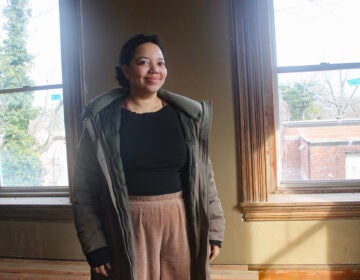When Law Enforcement and Health Care Meet
A look at some of the innovative efforts to transform the relationship between law enforcement and the health care system.
Listen 49:04
Police community and policing strategy communication building trust as law enforcement with policing and a diverse society as a policeman or policewoman symbol working with an icon of diversity in a 3D illustration style.
Police officers generally aren’t trained to deal with mental health crises — and yet they constantly find themselves being called on to intervene in these challenging situations, which can quickly escalate and even end in tragedy.
It’s just one of the many places where law enforcement and health care intersect, and sometimes clash. The two often work hand-in-hand to collect evidence or care for victims — and that can become a problem when they find their roles at odds.
On this episode, we explore the changing relationship between law enforcement and the health care system to find out how the two can work together better. We’ll hear stories about the HEART program in Durham, North Carolina — a new approach to mental health crises that dispatches trained mental health workers to 911 calls; a nurse who’s been pushing to create protocols for dealing with patients injured by police; and why one researcher says that prescription drug monitoring programs are blurring the lines between health care and law enforcement — in a way patients might not know about.
Also heard on this week’s episode:
- In 2022, the city of Durham, North Carolina, decided to try a radical experiment — a program called HEART, the Holistic Empathetic Assistance Response Team, which dispatches unarmed, specially-trained units to deal with mental health emergencies. In this excerpt from the three-part series “The Fifth Branch” from the podcast Tradeoffs and The Marshall Project, reporter Ryan Levy embeds with the program to find out how it got off the ground and overcame one of its biggest challenges: winning over police.
- Nurses often work closely with law enforcement to care for victims of violence and sexual assault, and document their injuries for future evidence. But that relationship can become muddled when those injuries are caused by police themselves. Reporter Emily Previti tells the story of one nurse who’s been pushing to set up guardrails for these kinds of situations, and what happened next. This piece is based on an episode of “From Words to Weapons,” a limited series from the podcast Obscured.
Segments from this episode
WHYY is your source for fact-based, in-depth journalism and information. As a nonprofit organization, we rely on financial support from readers like you. Please give today.






